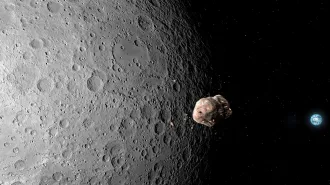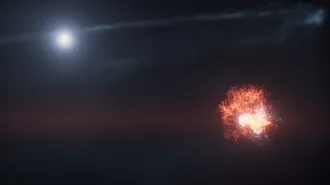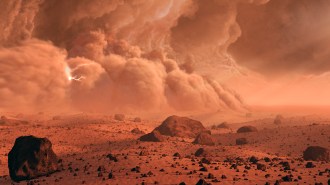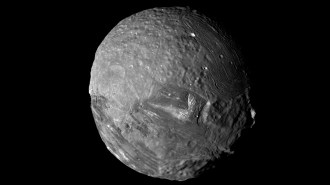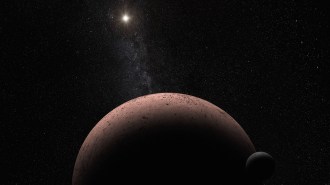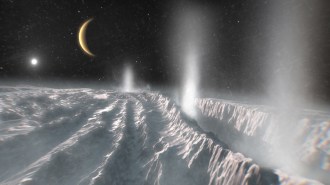The sad magnetic state of the solar system’s rocky worlds
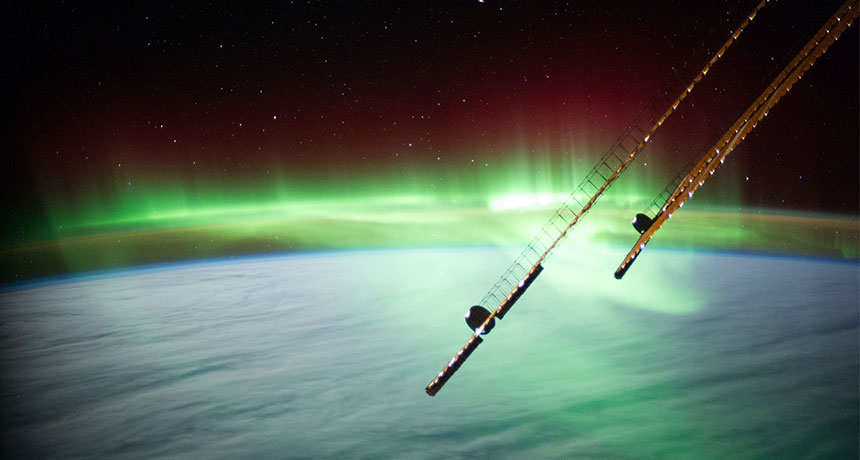
PLANETARY PROTECTION Earth’s magnetic field deflects charged solar particles toward the planet’s poles, generating auroras. This photo was taken from (and shows parts of) the International Space Station.
Above: NASA; Below, from top: NASA, JHUAPL, Carnegie Inst. for Science; JPL-Caltech/NASA; NASA; JPL-Caltech/NASA
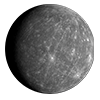 Mercury: Paltry
Mercury: Paltry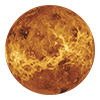 Venus: Zilch
Venus: Zilch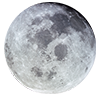 The moon: Lost
The moon: Lost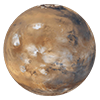 Mars: Collapsed
Mars: Collapsed